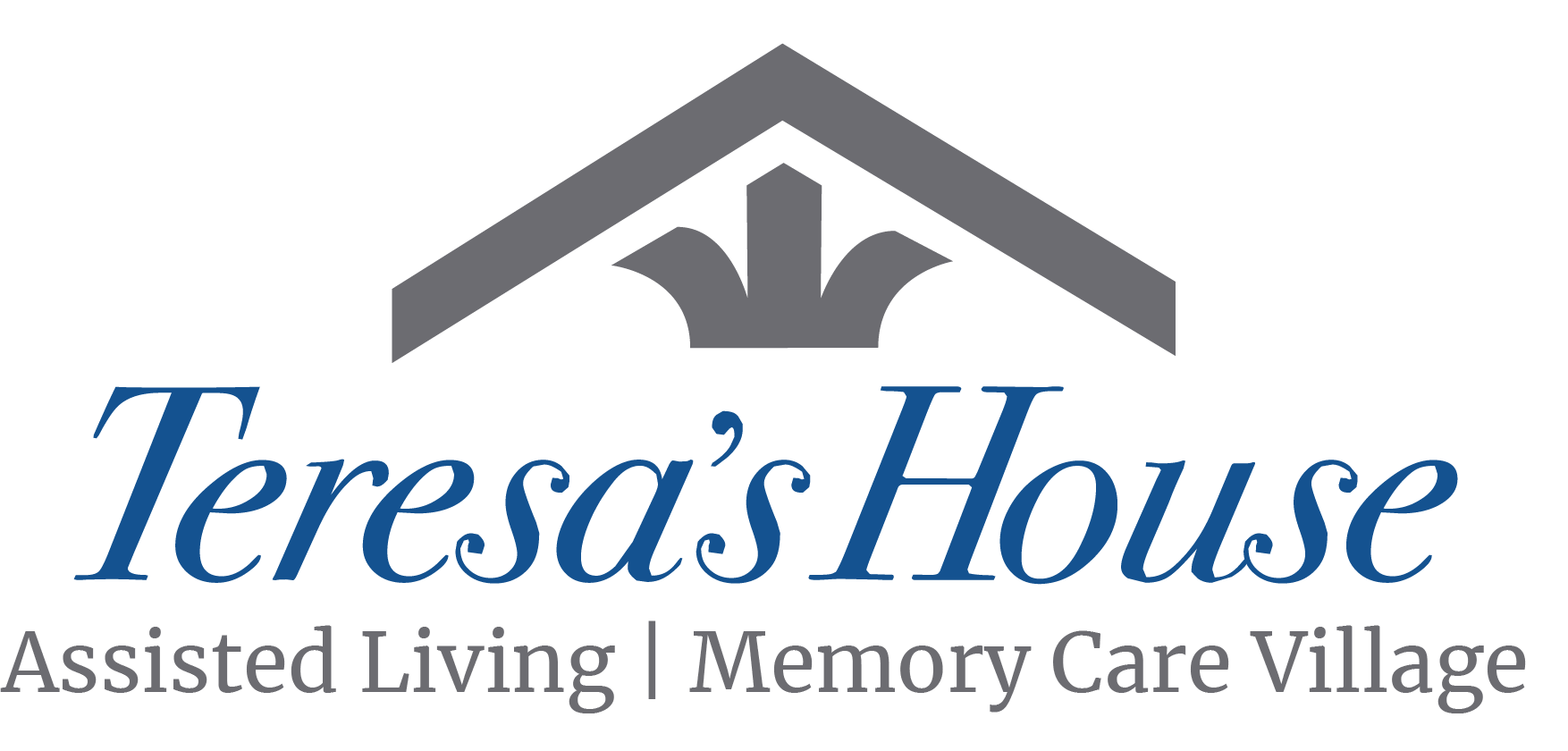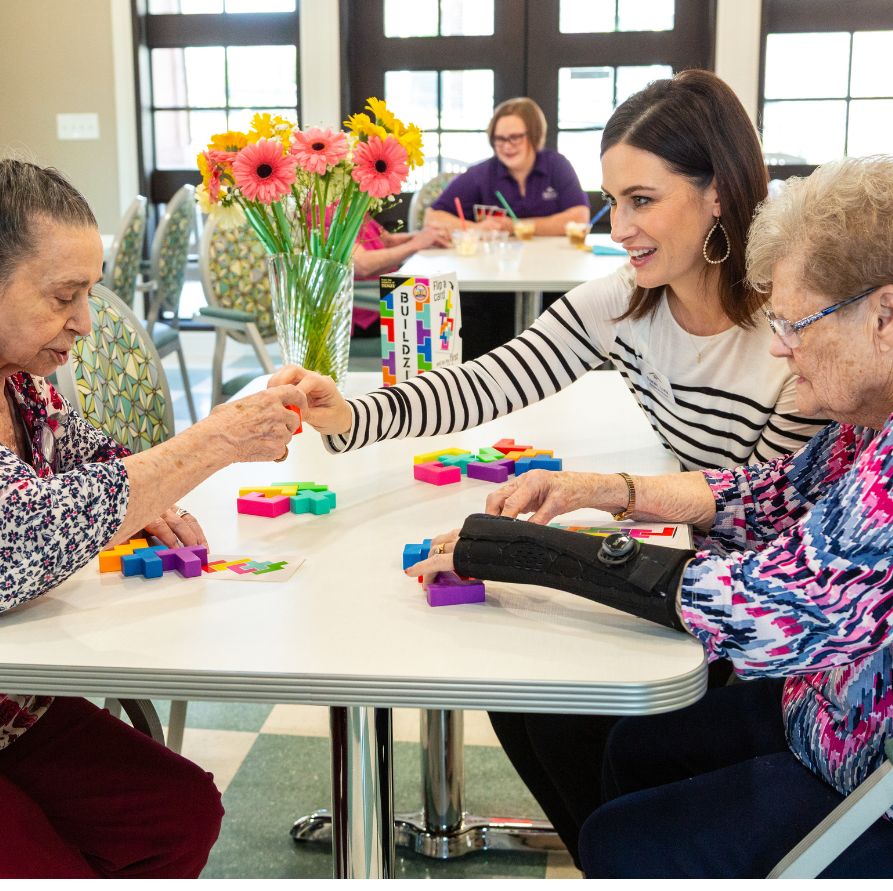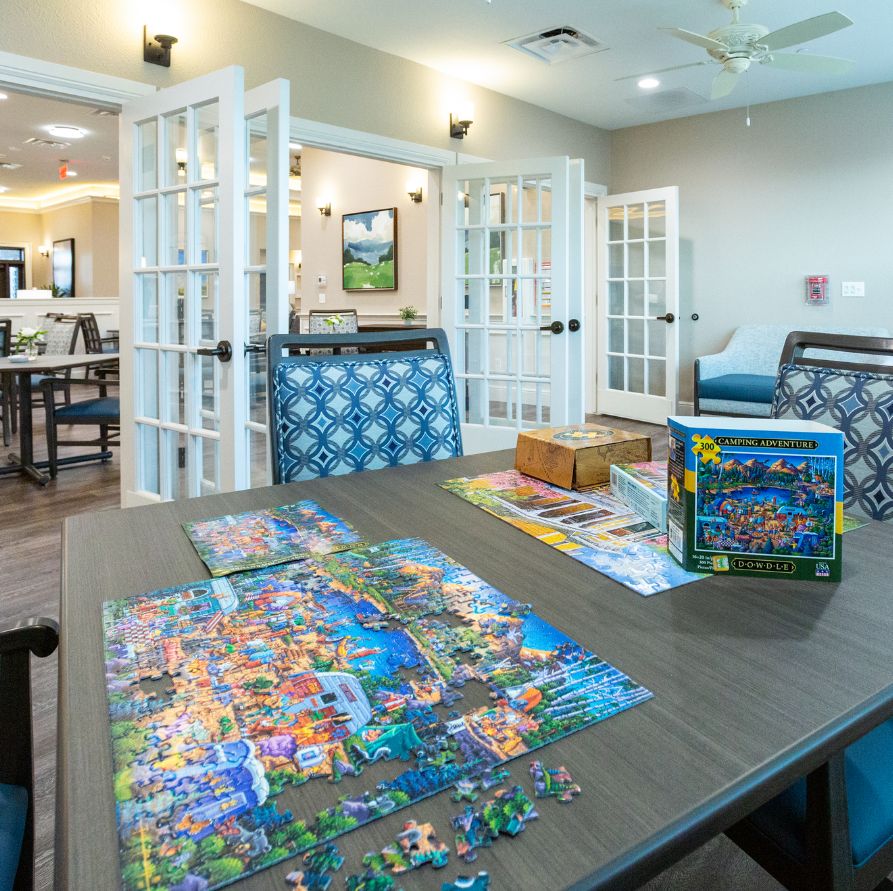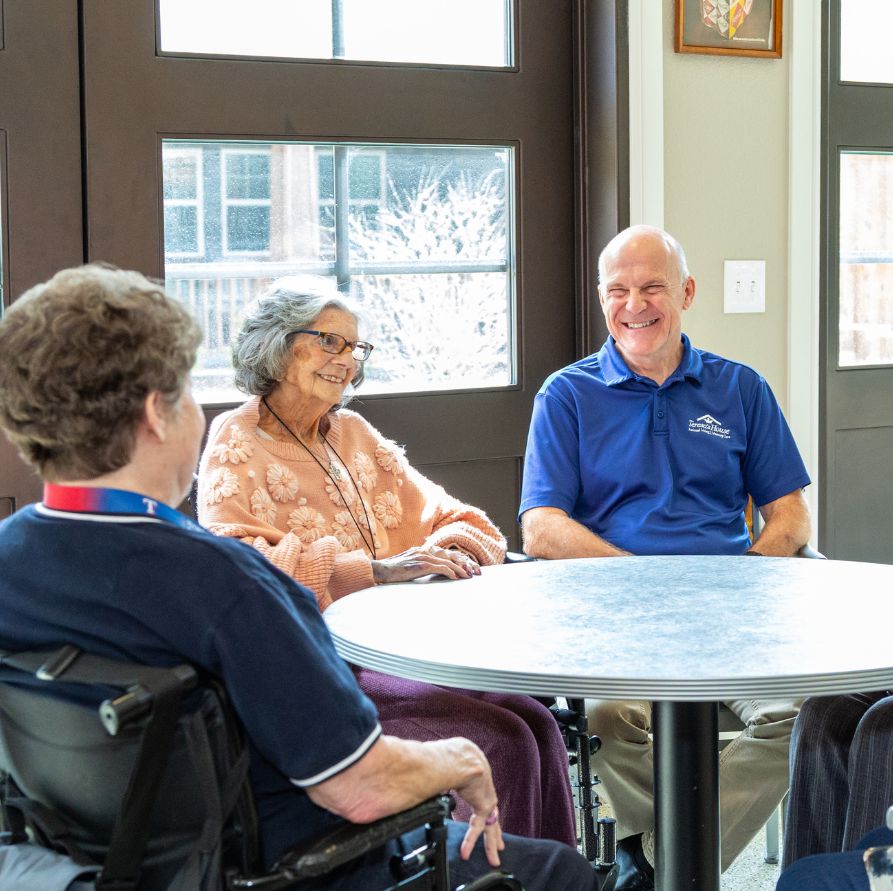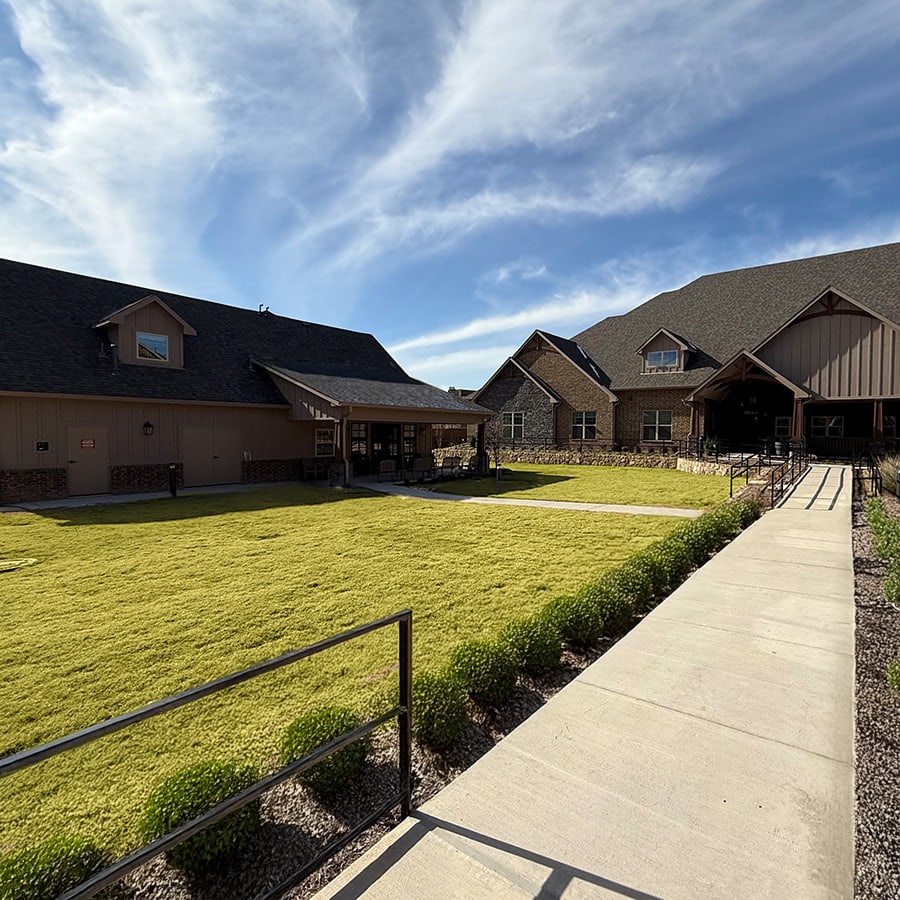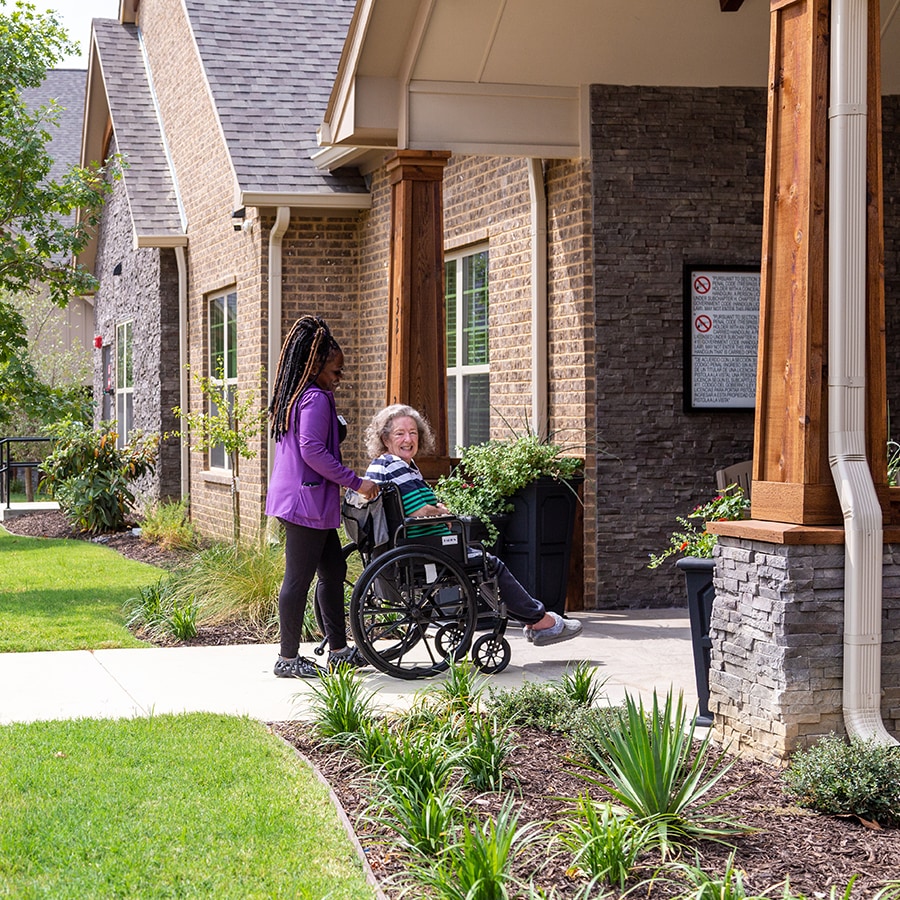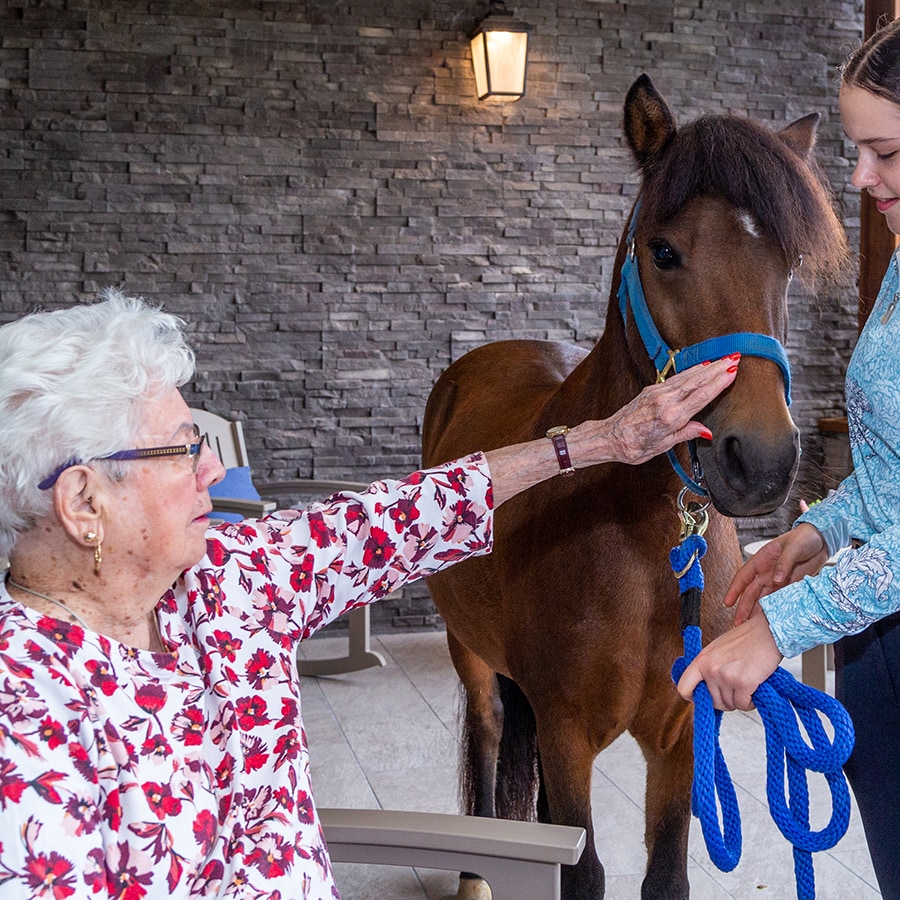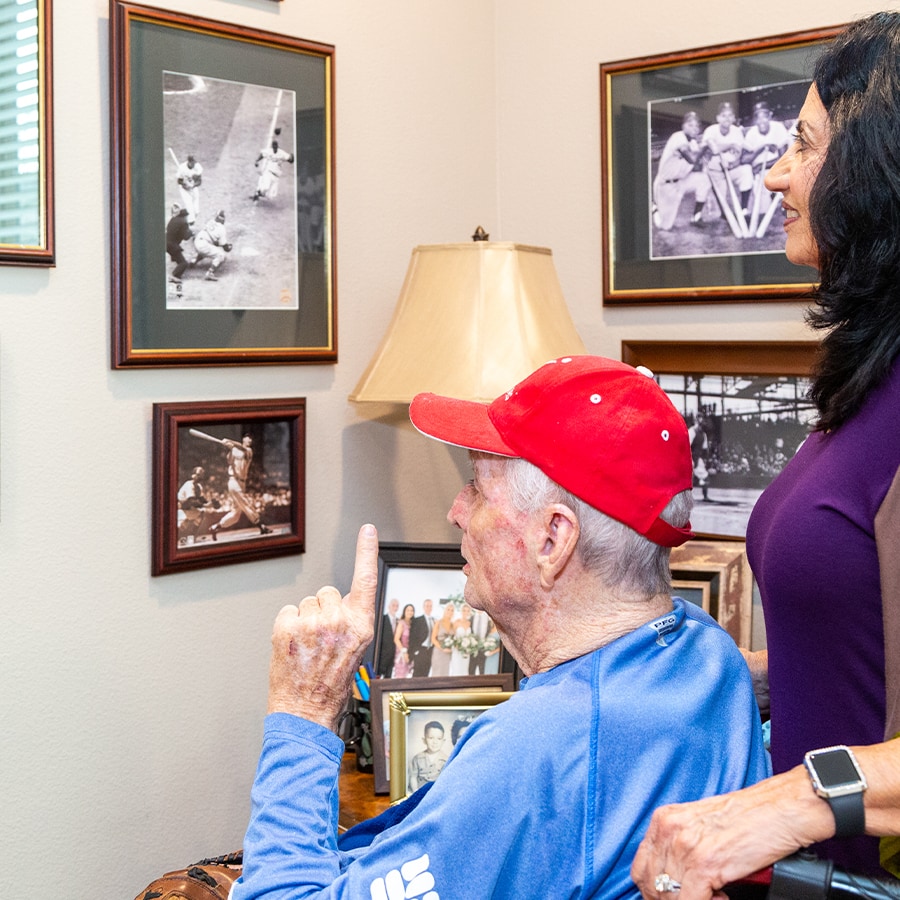Alzheimer’s disease is a progressive condition that affects memory, thinking, and behaviour. Recognizing the early signs of Alzheimer’s is crucial for seeking timely medical intervention and providing the necessary support for a loved one.
There are 7 common warning signs of Alzheimer’s disease:
- Memory loss that disrupts daily life
- Difficulty with problem-solving or planning
- Confusion with time or place
- Difficulty completing familiar tasks
- Changes in mood and personality
- Trouble with words in speaking or writing
- Misplacing items and losing the ability to retrace steps
Understanding these warning signs is at the core of Alzheimer’s care and can help families navigate their next steps, including seeking professional evaluation and planning for future care. Early intervention can improve quality of life and allow individuals to access treatments that may slow disease progression.
What is Alzheimer’s?
Alzheimer’s is a progressive neurodegenerative disease that primarily affects people over the age of 65. It begins subtly, often going unnoticed until it affects daily life. It’s one of the most common types of dementia, accounting for 60–80% of cases.
The disease progresses through stages, starting with mild cognitive impairment and advancing to severe dementia. Each stage presents a range of symptoms, from forgetfulness to significant confusion and disorientation.
The importance of early detection cannot be overstated. When identified early, treatment and lifestyle adjustments can slow Alzheimer’s progression, providing patients with a better quality of life. Furthermore, early diagnosis allows families to plan for the future, helping their loved ones receive the care and support they deserve.
What Are The Common Warning Signs of Alzheimer’s?
1. Memory Loss That Disrupts Daily Life
One of the most recognized early signs of Alzheimer’s is memory loss that goes beyond normal forgetfulness. Individuals may struggle to recall recently learned information, forget important dates or events, or repeatedly ask for the same information.
At first, they may rely on notes or reminders, but, as the disease progresses, even these coping strategies become less effective. Over time, memory loss can affect daily activities, making it difficult to manage finances, remember appointments, or follow conversations. Personalized memory care programs help people living with the condition maintain their independence for as long as possible.
2. Difficulty with Problem-Solving or Planning
Alzheimer’s can impact a person’s ability to develop and follow plans or work with numbers. They may have trouble following a recipe they’ve used for years or struggle to keep track of monthly bills. They might take longer to complete familiar tasks or make frequent mistakes when managing finances.
This can lead to frustration, causing people to withdraw from activities they once enjoyed. Tasks that require concentration, such as assembling furniture or balancing a checkbook, can also become overwhelming. That’s why memory care communities prioritize engaging activities—so that residents can participate in meaningful exercises that help preserve cognitive function.
3. Confusion with Time or Place
Losing track of dates, seasons, and the passage of time is another early warning sign. Someone with Alzheimer’s may forget where they are, how they got there, or even the current year.
A person might wake up and believe they’re in a different decade or become confused about routine events, such as whether they’ve eaten breakfast. They may also get lost in familiar places, such as their neighbourhood or a family member’s home. This confusion can lead to feelings of anxiety, distress, and frustration.
A structured, supportive environment like the one found in specialized memory care can help individuals feel more secure.

4. Difficulty Completing Familiar Tasks
People with Alzheimer’s often find it challenging to complete everyday tasks they once handled with ease. Simple activities like cooking a meal, driving to a familiar location, or following a list of instructions may become increasingly difficult.
In the early stages, a person may forget the steps involved in a routine task, such as making coffee or using a household appliance. As the disease progresses, they may require assistance with personal care and other daily responsibilities.
Thoughtful approaches, such as the one found in family-style dining at some senior living facilities, can encourage independence while providing the right level of support.
5. Changes in Mood and Personality
Alzheimer’s disease can cause noticeable shifts in mood, behaviour, and personality. A once-outgoing individual may become withdrawn, anxious, or easily upset. Some people develop uncharacteristic paranoia or suspicion, believing others are hiding things from them.
Mood swings may also become more frequent. A person who was previously patient and kind might become irritable, depressed, or aggressive. These changes can be distressing for both the individual and their loved ones, making it essential to provide a supportive and understanding environment.
Compassionate communities that embrace the 7 dimensions of wellness offer structured care that nurtures emotional and mental well-being.
6. Trouble with Words in Speaking or Writing
Language difficulties are common in Alzheimer’s, affecting a person’s ability to communicate effectively. They may struggle to find the right words, repeat themselves frequently, or stop speaking mid-sentence, unsure of how to continue.
Writing can also be affected, with individuals having trouble organizing their thoughts or spelling familiar words. Conversations may become difficult to follow as the person loses track of what was said or responds with unrelated phrases. Thoughtfully designed communities emphasize communication-focused care to keep residents engaged and socially connected.
7. Misplacing Items and Losing the Ability to Retrace Steps
While everyone misplaces objects from time to time, people with Alzheimer’s often put things in unusual places and are unable to retrace their steps to find them. For example, they might place a remote control in the refrigerator or car keys in a kitchen cabinet.
As frustration builds, they may accuse others of stealing or hiding their belongings. This symptom can be particularly distressing for caregivers, as repeated accusations may create tension within the household.
Professional memory care services provide structured routines to minimize these challenges and create a more predictable environment.
What to Do If You Notice These Signs
If you or a loved one is experiencing these symptoms, it’s important to seek medical evaluation as soon as possible. While there is no cure for Alzheimer’s, early diagnosis allows for better management of symptoms, access to treatments that may slow progression, and the opportunity to plan for future care.
A healthcare professional can conduct cognitive assessments and recommend next steps, which may include lifestyle changes, medications, or specialized memory care.
Supporting a Loved One with Alzheimer’s
Caring for someone with Alzheimer’s requires patience, understanding, and a structured approach to daily living. As the disease progresses, those living with it may need additional support with personal care, meal preparation, and social engagement.
Creating a predictable routine can help reduce confusion and anxiety. Providing gentle reminders, using clear communication, and ensuring a safe home environment are all essential in promoting comfort and security.
Depending on care needs and the stage of the disease, a loved one with Alzheimer’s may consider assisted living or memory care with Alzheimer’s care programs. A compassionate team with strong leadership can help ensure that residents receive the best possible care tailored to their needs.
Memory Care Support in Texas
For families seeking compassionate care for a loved one with Alzheimer’s, Teresa’s House offers dedicated memory care at two locations: Craig Ranch in McKinney, TX, and Argyle, TX. Our expert team provides personalized support in a comfortable, home-like setting, helping residents maintain their independence while receiving the care they need.
Through our focus on engaging activities and holistic wellness, we ensure that every resident is cared for in a way that enhances their quality of life.
If you’re exploring memory care options for a loved one, schedule a visit to one of our locations. Our dedicated team is here to answer your questions and help you find the best path forward. Contact us today to learn more and to schedule a private tour.
